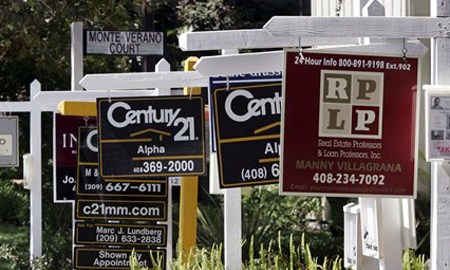More than two million jobless Americans are entering the holiday season seized with varying levels of foreboding, worry or even panic over what lies ahead as they cope with the expected cutoff of their unemployment benefits.
Their economic fates are now connected on a taut string to skirmishing between Democrats and Republicans in Washington over whether to extend federal financing for unemployment benefits for the long-term jobless.
Tuesday marked the expiration of a pair of federal programs that had extended unemployment benefits anywhere from 34 to 73 weeks on top of the 26 weeks already provided by the states.
The federal extensions have been customary in past recessions and their aftermath, but they have become ensnared lately in political jousting over the soaring budget deficit.
Some recipients have already received their final checks. If the impasse remains unresolved, others will see their payments lapse in the coming days or weeks, depending on how long they have been receiving benefits.
By the end of December, more than two million are set to lose their extended benefits, according to estimates by the National Employment Law Project, and about a million more by the end of January.
While benefits have lapsed twice before in this downturn because of Congressional bickering — the last time, in June and July, payments were interrupted for 51 days— advocates for the unemployed are worried that if the issue is not resolved by the current lame-duck session of Congress, prospects in the next, with Republicans ascendant, are even slimmer.
That would mean a new reality facing legions of people across the country: a cutoff after six months of benefits for anyone out of work.
MICHAEL LUO
In Washington, Partisan Gridlock
WASHINGTON — With jobless benefits starting to run out for up two million of the long-term unemployed, Senate Democrats this week repeatedly tried to bring up a bill that would prolong aid for a year, only to hear Republicans object and block the legislation. Democrats, in turn, rejected Republican counterproposals.
In both the Senate and House, Democrats are pressing the case for jobless aid on two fronts, arguing that it is both the moral and humanitarian thing to do — especially during the holiday season — and that it is also an effective policy mechanism to help stimulate the economy.
“Unemployment insurance, the economists tell us, returns $2 for every dollar that is put out there,” the House speaker, Nancy Pelosi, said in a floor speech on Thursday. “People need the money. They spend it immediately for necessities. It injects demand into the economy. It helps reduce the deficit.”
Republicans said they would be willing to extend benefits provided that Democrats agree to cut spending elsewhere to cover the cost, sparking indignation among Democrats who noted that the Republicans never insist on offsetting the revenue lost through tax cuts.
A deal to extend the aid is likely, but only as part of a wider agreement on the expiring Bush-era tax cuts, and it is unclear how long that will take.
One exchange on the Senate floor, between Senators Jack Reed, Democrat of Rhode Island, and Scott P. Brown, Republican of Massachusetts, was emblematic of the debate.
“In my state of Rhode Island, people are in a very serious situation,” Mr. Reed said. “They are struggling to stay in their homes, to educate their children, to deal with the challenges of everyday life. They have worked hard and long all their lives, and now they are finding it difficult to get a job.”
Mr. Reed noted that Congress has always extended jobless benefits in times of high unemployment.
“We have always done it on an emergency basis because it truly is an emergency,” he said. “We have always determined that it was necessary to get the money to the people who could use it, who needed it desperately, and we should do that again.”
Moments later, when Mr. Reed asked for the Senate’s unanimous agreement to consider his bill, Mr. Brown was waiting. “I object,” Mr. Brown said. “And I have a pay-for alternative on which I would like to speak.”
Mr. Brown proposed that money previously appropriated but not yet spent be redirected for the jobless aid. “The recent job numbers in Massachusetts reflect over 280,000 people unemployed in my state alone — over 8 percent of the Massachusetts work force. As the senator from Rhode Island mentioned — and I know Rhode Island well; I eat in Federal Hill regularly — the unemployment is much higher there.”





